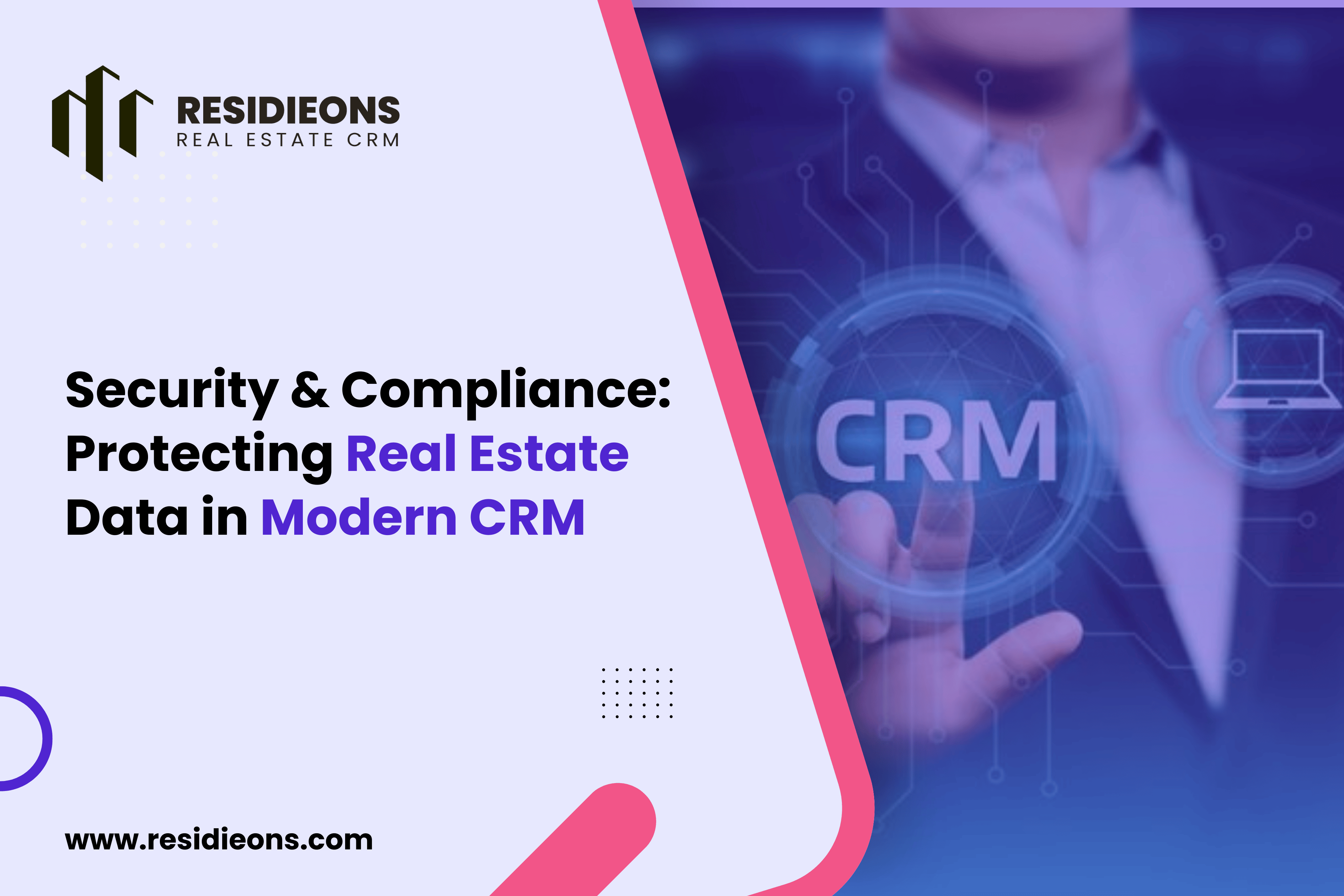
In an ultra-modern, enormously competitive actual property enterprise, the effective management of patron relationships is essential for achievement. Customer Relationship Management (CRM) structures have grown to be crucial equipment for top real estate companies to streamline their operations, beautify patron delight, and power enterprise growth. However, integration with other enterprise platforms and structures is critical to absolutely leveraging the energy of CRM. This article explores the significance of CRM integration in actual property companies and how it maximizes performance across numerous structures. It delves into the blessings, demanding situations, successful strategies, first-class practices, and destiny tendencies in CRM integration. It offers precious insights for real estate specialists aiming to optimize their client relationships and overall commercial enterprise performance.
In the fast-paced world of actual property, retaining strong relationships with customers and handling substantial amounts of records is critical. This is where Customer Relationship Management (CRM) structures step in. CRM software facilitates actual property groups to organize and centralize their patron information, tune interactions, and streamline communication, making it a treasured tool for success.
As actual estate groups extend their digital presence, they regularly locate themselves using a couple of systems and programs to manage extraordinary components in their commercial enterprise. This can result in record silos, duplicate access, and inefficient strategies. That's where CRM integration is available. By seamlessly connecting their CRM gadgets with other structures and applications, top real estate companies can maximize efficiency and create a unified environment that simplifies operations.
One of the primary benefits of CRM integration is the capability to streamline statistical management. With integration, real estate businesses can robotically sync statistics between their CRM machine and different equipment, disposing of the need for guide record access and decreasing the chance of errors. This leads to extra-accurate and up-to-date statistics, allowing faster selection-making and advanced productivity.
CRM integration permits real estate agencies to gain a complete view of their clients by consolidating data from numerous sources. With a centralized database, marketers and groups can access client information, including past interactions and preferences, in a single location. This empowers them to provide personalized studies, improve consumer delight, and construct more potent long-term relationships.
Integrating CRM with sales and advertising gear can supercharge a real estate company’s effort. By connecting lead technology systems, email advertising software, and social media analytics to the CRM system, groups can correctly track leads, measure campaign effectiveness, and automate follow-up techniques. This integration permits targeted marketing campaigns, speeds up the sales cycle, and ultimately boosts sales.
While CRM integration offers several blessings, it raises worries about record security and privacy. Real estate agencies deal with touchy purchaser facts, and integrating one-of-a-kind structures can disclose vulnerabilities. To cope with this mission, agencies need to prioritize information encryption, user access controls, and normal protection audits to ensure the protection of consumer records.
The real property enterprise regularly operates with a large selection of technology tools that may not clearly communicate with each other. This fragmented panorama makes CRM integration extra tough. Overcoming this hurdle requires a cautious evaluation of existing structures, figuring out commonplace integration points, and choosing flexible CRM answers that could seamlessly connect to a lot of structures.
Introducing CRM integration into a real estate organization may additionally face resistance from employees who are familiar with the present procedures. Overcoming this hurdle includes effective trade management techniques consisting of clear conversation, training applications, and highlighting the benefits of integration. Employee purchase-in is important to ensure successful adoption and maximize the capability of CRM integration.
Before embarking on CRM integration, actual property organizations ought to conduct a thorough assessment of their cutting-edge structures and procedures. Identifying pain points and regions of development facilitates deciding on unique integration desires and prioritizing integration efforts successfully.
Selecting the right CRM integration solutions is critical for smooth implementation. Real estate businesses have not to forget elements like compatibility with current structures, scalability, person-friendliness, and seller assistance. Investing time in comparing unique alternatives will pay off in the end by ensuring a successful integration.
To triumph over resistance to change, real property agencies want to enforce effective change management techniques. This consists of presenting comprehensive education packages to teach personnel the advantages of CRM integration and how to use the incorporated device. Ongoing support and comment mechanisms also play a vital function in driving successful adoption.
By embracing CRM integration, pinnacle real property organizations can free up a world of performance and productivity. The benefits of streamlined information management and improved customer dating management. Advanced sales, advertising, and marketing efforts, mixed with hit implementation techniques, pave the way for actual property achievement in a state-of-the-art digital panorama.
Company A, a top real estate company, has observed great success in streamlining its operations through CRM integration. By integrating its CRM machine with different systems, which include top real estate companies' property listing websites, electronic mail advertising gear, and transaction management software, the company has been able to centralize its facts and automate numerous processes.
With CRM integration, Company A's dealers can without difficulty get admission to and replace customer data, music leads, and manage transactions all in one region. This has significantly improved their performance and decreased the probability of mistakes or replicating statistics. Additionally, the integration allows for seamless communication among one-of-a-kind groups in the business enterprise, improving collaboration and ensuring a steady client experience.
Company B, like every other main real estate organization, has centered on leveraging CRM integration to enhance its customer service. By integrating their CRM system with their customer service software program and social media channels, they were able to offer timely and customized help to their clients.
Through CRM integration, Company B's aid team can easily get admission to customer data, view previous interactions, and stay up-to-date with any ongoing troubles or requests. This enables them to offer efficient and tailor-made assistance, resulting in higher patron delight and stepped-forward retention rates. Additionally, the integration permits proactive communication, including sending customized asset hints based totally on client options.
When integrating CRM with other systems, actual property corporations must establish clean statistics governance regulations. These guidelines ought to define information possession, privacy, and safety features, as well as recommendations for information access and updates. By setting up such rules, organizations can ensure data integrity and maintain consistency throughout their structures.
To maximize efficiency, real property groups should prioritize information pleasantness and consistency at some stage in CRM integration. It is essential to easily replace facts and cast off duplicates. Enforce standardized record access practices. This will help avoid confusion and mistakes, allowing for correct reporting and evaluation.
To definitely maximize efficiency, actual property agencies ought to explore integrating CRM with different business structures. This includes accounting software, advertising and marketing automation gear, and venture management systems. This integration permits seamless information flow and gets rid of the need for guide facts, saving time and reducing mistakes.
As technology advances, actual estate groups can anticipate seeing more integration of synthetic intelligence (AI) and automation in CRM structures. AI-powered chatbots and clever assistants can manage recurring client inquiries and automate positive obligations, freeing up agents' time to focus on more complex matters.
With the growing reliance on cell gadgets, real property businesses will more and more adopt cell CRM integration. This permits marketers to get entry to and replace purchaser facts, track leads, and control transactions while on the go. Mobile integration gives retailers flexibility and ensures that they have the statistics they want, wherever they are.
The integration of CRM with Internet of Things (IoT) gadgets is a trend that holds excellent potential for real property groups. By connecting CRM systems with clever gadgets, groups can gather records on belongings usage, upkeep desires, and power consumption. These facts can then be used to optimize operations, improve belongings management, and enhance the overall consumer experience.
Remember, the key to successful CRM integration is locating the proper balance between technological advancements and the unique needs of your actual estate business. With careful planning and implementation, CRM integration can revolutionize how actual estate agencies operate, maximizing efficiency and ultimately leading to greater success.
In the end, Residieons CRM integration plays a pivotal role in improving the performance and effectiveness of actual property companies. By seamlessly connecting CRM systems with different platforms and structures. Organizations can streamline their operations, improve client courting management, and boost sales, advertising, and marketing efforts.
While challenges may also arise during the integration system, enforcing successful strategies and following pleasant practices can triumph over those obstacles. As the enterprise continues to adapt, destiny traits consist of artificial intelligence. Cell integration and IoT gadgets are set to shape the destiny of CRM integration in real estate. By staying ahead of these developments and embracing the power of CRM integration, real estate organizations can position themselves for sustainable boom and success in the dynamic market landscape.

The real estate market is changing very quickly today, and if you want to s
Read More...


If you are in the real estate business, you already know how tou
Read More...
In today’s competitive real estate market, managing leads, foll
Read More...